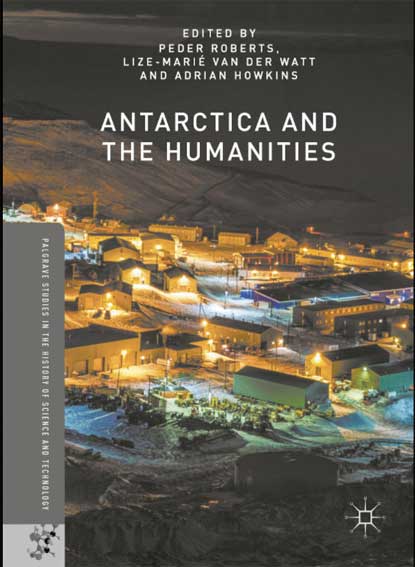 Peder Roberts, Adrian Howkins, and Lize-Marié Van der Watt’s new book Antarctica and the Humanities presents the convincing argument that the continent for peace and science is also a continent for the humanities. The book is published by Palgrave MacMillan, and includes chapters from a range of HASSEG members.
Peder Roberts, Adrian Howkins, and Lize-Marié Van der Watt’s new book Antarctica and the Humanities presents the convincing argument that the continent for peace and science is also a continent for the humanities. The book is published by Palgrave MacMillan, and includes chapters from a range of HASSEG members.
The publisher describes Antarctica and the Humanities thus:
“Despite having no indigenous human population, Antarctica has been imagined in powerful, innovative, and sometimes disturbing ways that reflect politics and culture much further north. Antarctica has become an important source of data for natural scientists working to understand global climate change. As this book shows, the tools of literary studies, history, archaeology, and more, can likewise produce important insights into the nature of the modern world and humanity more broadly.”
This is a timely and relevant text for all those involved in humanities research about Antarctica.
